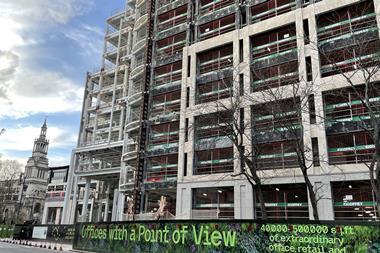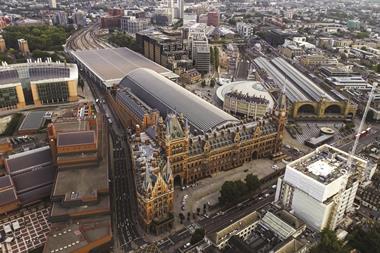This week, I had the privilege of beginning a short stint as Property Week’s interim editor and, looking at some of the content in this issue, it struck me that the industry mood is changing.

There’s a distinct feeling that a perma-crisis – a prolonged period of disruption economically, politically and socially – is heading our way and the property industry risks being hit hard along with everyone else.
While there are some sectors enjoying extraordinary growth and success, there are also signs of real concern about long-term volatility and an uncertain future.
The pandemic, the escalating, horrific war in Ukraine and record inflation levels are taking their toll right across the industry. Supply chain disruption, sky-high material and finance costs, squeezed margins, difficult labour markets and big shifts in working life are forcing every business to completely re-evaluate the way they operate.
This week’s insolvency figures underline this troubled picture. The latest government figures show a 27.4% quarter-on-quarter rise in the number of real estate registered companies becoming insolvent in Q1 2022 – that’s 172 businesses going to the wall in England and Wales. The construction sector is equally blighted, with failures in England and Wales increasing by 142% year on year and some big names collapsing under the strain.
Shore Capital’s Dr Clive Black predicts another 12 to 24 months of elevated inflation, the likes of which many of us have never seen before. Russia, he says, is probably hellbent on deglobalisation, and its actions will lead to even higher prices. He believes the booming labour market we’ve enjoyed for years is about to end as inflation hits demand and companies will be forced to radically cut costs.
No industry will be immune from the scale of challenges facing consumers. Josie Parsons, chief executive of LocalSpace, says families are fast approaching the financial danger zone due to hikes in energy, transport and food prices. Housing affordability has been a UK problem for the past 10 years, but it’s been hidden by low inflation and low prices. Not any longer.
But it’s not all doom and gloom. Property is fundamental to the economy, a long-cycle business that has weathered many a storm – the financial crash of 2008 and the current pandemic among them – by balancing immediate threats against firm belief in longer-term opportunities. Those who manage to keep a cool head and an eye on the future often come out on top, as highlighted by Neil Sinclair, chief executive of Palace Capital.
The growing trend for retail-to-residential transformation is another example of the sector’s resilience and powers of reinvention. Replacing superannuated shops and stores with much-needed new housing helps keep city centres alive while also creating new opportunities for developers and investors. And if anyone needs convincing that industrial and logistics remains the hottest of hot prospects, then Blackstone’s huge £17.5bn recapitalisation of its Mileway last-mile business is more than proof enough.
No doubt the perma-crisis will bring more than its fair share of challenges to everyone, from the bosses at head office to the workers at site offices. But the strength of the sector is that whatever the future holds, there will always be something for property people to be positive about.
The new editor of Property Week Lem Bingley, currently editor of Construction News, will be joining on 8 June and looks forward to meeting many of you at the Property Awards in London on 7 June.






























No comments yet